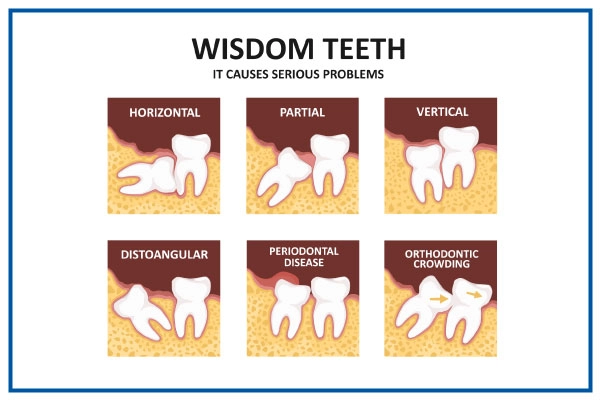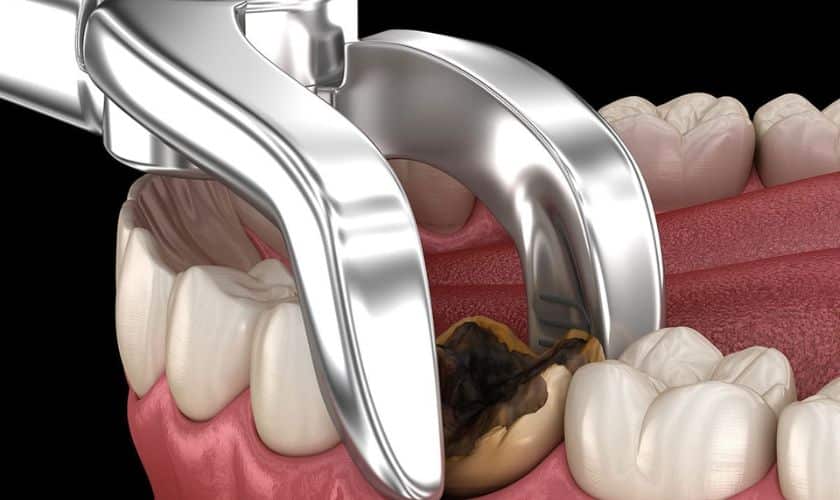Comprehensive Overview to Wisdom Teeth Removal Aspendale: What to Expect
Comprehensive Overview to Wisdom Teeth Removal Aspendale: What to Expect
Blog Article
Checking Out Different Sedation Options for a Comfy Knowledge Teeth Extraction Experience
The use of sedation throughout such treatments has ended up being increasingly usual to minimize anxiety and pain. With a variety of sedation alternatives offered, from regional anesthetic to general anesthetic, each technique uses varying levels of leisure and pain control.
Regional Anesthesia
Neighborhood anesthesia is a generally used technique for numbing particular locations of the mouth during wisdom teeth removal procedures. By providing a neighborhood anesthetic, such as lidocaine, a dentist can ensure that the person remains pain-free and comfortable throughout the removal procedure.
Among the key advantages of regional anesthetic is its targeted numbing result, which suggests that only the details area being dealt with is impacted. This local approach reduces the danger of systemic negative effects and enables a quicker recovery post-procedure. Furthermore, regional anesthesia is taken into consideration to be a safe and routine practice in dentistry, with minimal risks involved when administered by a trained specialist.
Laughing Gas
Nitrous oxide, frequently understood as giggling gas, is a type of sedation frequently used in dental care to assist patients kick back during dental treatments. This sedation option enables the client to remain receptive and aware throughout the procedure while really feeling at convenience and comfortable.
In addition, laughing gas is known for its quick healing time. As soon as the mask is removed, the results of the gas wear off swiftly, enabling people to resume their typical tasks without lingering sedative effects. This makes laughing gas a hassle-free choice for those who require to drive themselves home after the dental visit. In addition, laughing gas appropriates for clients of every ages, making it a functional sedation choice for knowledge teeth extractions and other dental treatments.
Dental Sedation
Oral sedation, a pharmacological method used in dentistry, involves the administration of sedative medications by mouth to generate an unwinded state throughout oral treatments. This form of sedation is generally used for patients undergoing wisdom teeth extraction to minimize stress and anxiety and discomfort. The medicines prescribed for dental sedation come from a course of drugs called benzodiazepines, which have sedative, anxiolytic, and amnesic residential or commercial properties. Usually, the individual takes the recommended medication before the procedure, allowing enough time for the sedative impacts to hold.
Unlike intravenous sedation, dental sedation does not need shots or needles, making it a more comfortable choice for individuals with a concern of needles. In addition, dental sedation is considered effective and safe when provided by skilled oral professionals.
IV Sedation
Provided intravenously by qualified medical specialists, IV sedation is a powerful method used to cause a controlled state of deep relaxation and unconsciousness during oral procedures. Unlike dental sedation, which can be uncertain in its effects, IV sedation enables specific control over the degree of sedation, making it an optimal option for complex treatments like knowledge teeth removals.
Throughout IV sedation, a sedative medication is supplied directly right into the blood stream with a capillary, enabling it to take impact promptly and efficiently. This approach ensures that the patient remains unaware and comfortable of the treatment while still keeping important functions such as breathing and heart rate.
Among the main advantages of IV sedation is its capability to offer a deeper level of sedation compared to various other techniques, making it specifically appropriate for individuals with high degrees of anxiety or those undergoing substantial oral work (wisdom teeth removal aspendale). In addition, the impacts of IV sedation commonly put on off progressively after the procedure, reducing the chance of grogginess or lingering adverse effects. Generally, IV sedation provides a look at this now reliable and risk-free alternative for ensuring a comfy and trouble-free experience throughout wisdom teeth removal

General Anesthesia
Having discussed the advantages of IV sedation for wisdom teeth extraction, the application of general anesthetic provides an alternative choice for clients requiring a much deeper degree of unconsciousness throughout oral treatments. General anesthesia causes a regulated state of unconsciousness, making certain the individual really feels check this no discomfort or discomfort throughout the removal process. This technique is especially useful for people with severe dental anxiousness, complicated medical demands, or those undergoing several removals at the same time.
General anesthesia is provided by an experienced anesthesiologist who very closely keeps track of the individual's essential signs throughout the procedure. It includes making use of intravenous medications or inhaled gases to induce a state of unfamiliarity. While under basic anesthetic, the patient will not be conscious of the surgical treatment, experience any kind of pain, or have any recollection of the treatment afterward.
Although general anesthesia is risk-free when administered by certified specialists, it carries a slightly greater risk compared to other sedation choices - wisdom teeth removal aspendale. Individuals thinking about general anesthetic for wisdom teeth removal ought to review the potential dangers and benefits with their dentist or dental surgeon to make an educated decision based upon their specific demands and medical background

Verdict
To conclude, different sedation choices are offered to make certain a comfortable wisdom teeth extraction experience. Neighborhood anesthetic is frequently used for numbing the particular area, while nitrous oxide gives leisure and discomfort alleviation. Dental sedation and IV sedation offer much deeper degrees of leisure, depending upon the client's needs. General anesthetic can be used for a lot more complex cases. It is very important to seek advice from your dentist or dental doctor to figure out the most appropriate sedation option for your treatment.
Nitrous oxide is ideal for clients of all ages, making it a functional sedation choice for wisdom teeth extractions and various other dental treatments.

Report this page